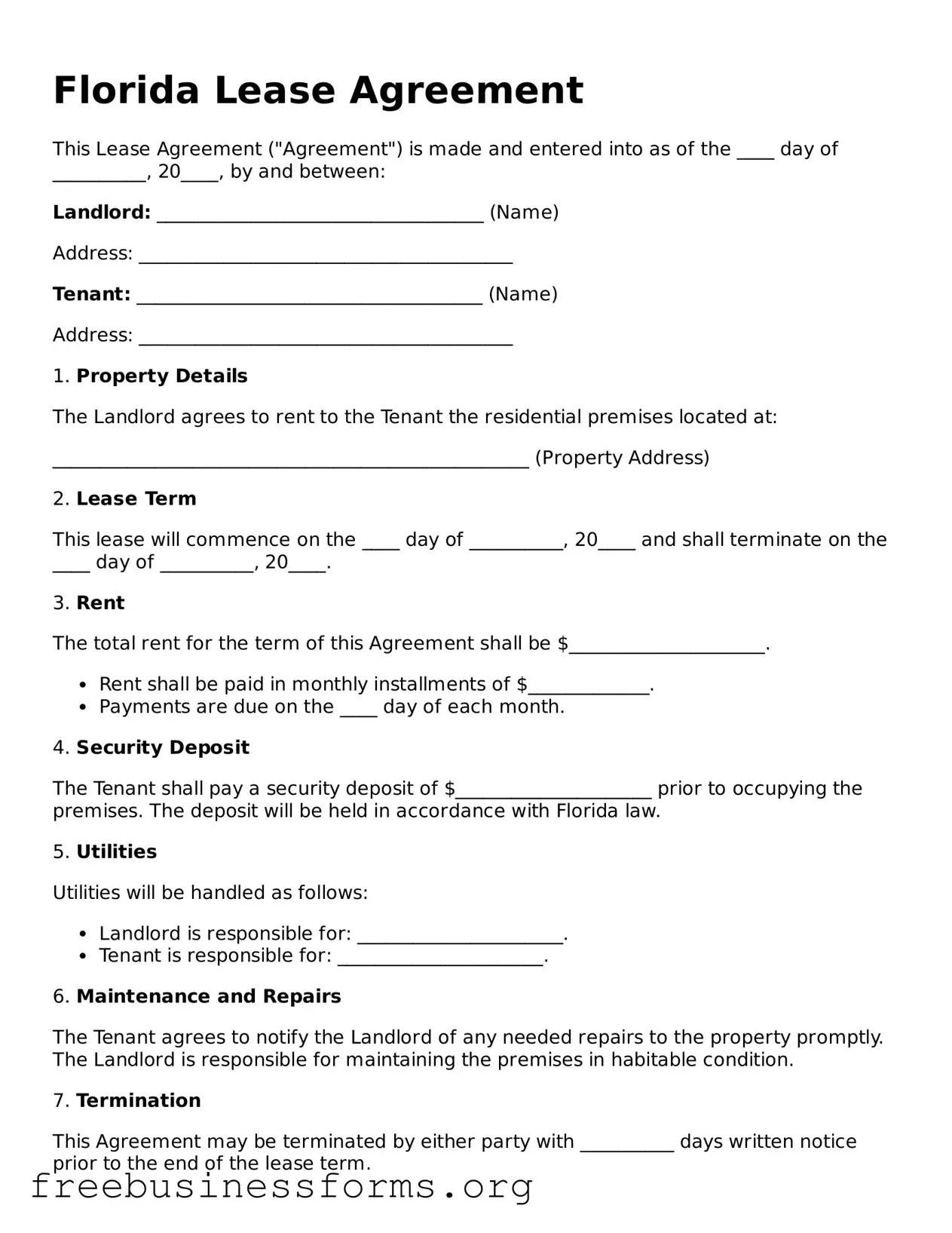Blank Lease Agreement Template for Florida
A Florida Lease Agreement form is a legally binding document that outlines the terms and conditions under which a landlord rents property to a tenant. This essential agreement protects the rights of both parties, ensuring clarity and mutual understanding throughout the rental period. Understanding the components of this form can lead to a smoother rental experience and help prevent potential disputes.
Open Form Here

Blank Lease Agreement Template for Florida
Open Form Here

Open Form Here
or
↓ PDF File
Quickly complete this form online
Complete your Lease Agreement online quickly — edit, save, download.